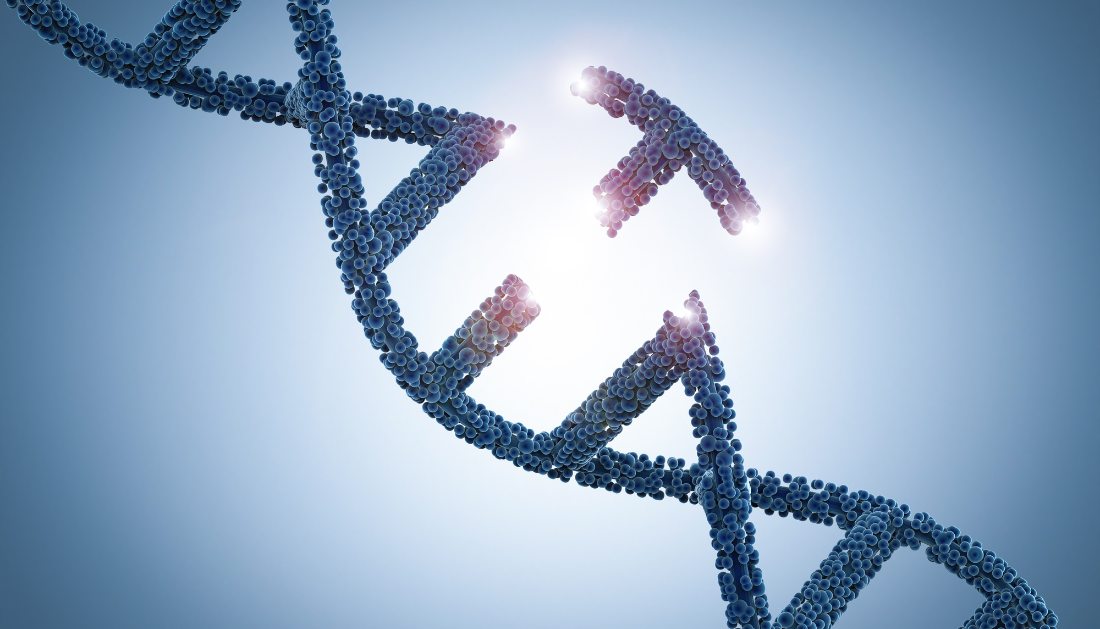

Phenylketonuria (PKU) is an uncommon infant genetic disorder that affects 1 in 10,000 to 1 in 20,000 persons, depending on the individual’s genetic history. PKU causes an amino acid known as phenylalanine (Phe) to accumulate in the circulation. Uncontrolled Phenylketonuria (PKU) can cause mental retardation, psychological problems, and convulsions. While existing medicines can improve results in some cases, they require rigorous, lifelong compliance, which most patients find difficult. New research from the University of Pennsylvania’s Perelman School of Medicine sheds light on potential future treatments involving gene editing, specifically two newer forms of CRISPR gene editing, prime editing and base editing.
Two different studies were published today, one in The American Journal of Human Genetics and the other in Human Genetics and Genomics Advances. Dominique Brooks, a graduate student in the laboratory of Kiran Musunuru, MD, PhD, a professor of Cardiovascular Medicine and Genetics at Penn, presented the findings at the American Society of Human Genetics (ASHG) annual meeting in Washington, D.C.
The first of two trials looked into a “prime editing” approach to correcting the genetic variant that causes the illness. Prime editing, which is sometimes equated to word processing, allows for exact modifications in DNA by rewriting specific genetic regions. Using data from 129 PKU patients, researchers discovered that those with the c.1222C>T genetic variant in the phenylalanine hydroxylase (PAH) gene—the most prevalent Phenylketonuria (PKU)-causing variant worldwide—had very poor metabolic regulation.
PKU sufferers must keep their Phe levels between 120 and 360 mol/L to stay healthy. However, the majority of those investigated had Phe levels that were higher than that, which can cause neurological harm. The researchers carried out trials on human liver cells containing the faulty gene and effectively demonstrated the efficacy of this prime-editing approach, potentially paving the road for therapeutic interventions. Researchers also effectively fixed the genetic PAH c.1222C>T variation in mouse liver utilizing prime editing. This resulted in a significant decrease in Phe levels, with all treated animals falling well below the 360 mol/L threshold. This rep
Medicine Research News, Medicine Research, Health Research News, Health Research, Health Science, Medicine Science
air was accomplished without altering the mice’s liver function.
“This research brings hope for those with Phenylketonuria (PKU), a lifelong disease with no durable treatments, as it demonstrates the feasibility of using gene editing to permanently correct the most common genetic variant associated with this condition,” stated Musunuru, who is also a senior author of the “While there are still challenges to overcome, these findings open the door to potential new treatments that could significantly improve the lives of PKU patients.”
The second study focused on the same PAH c.1222C>T variation, which is the most common genetic cause of PKU. They tested this procedure in lab-grown liver cells and subsequently in mice models using base editing, a gene-editing technique that precisely edits a specific DNA sequence by replacing one DNA letter with another, similar to a pencil and eraser.
Phe levels were normalized within 48 hours after the selected base editor and guide RNA were administered into the animals via lipid nanoparticles, utilizing the same method as the COVID-19 mRNA vaccines. So far, the researchers have observed sustained reductions in Phe levels in related investigations. This is a remarkable advancement in the treatment of PKU, which generally necessitates lifetime Phe level monitoring.
“These findings are a significant step forward in the treatment of PKU,” said Rebecca C. Ahrens-Nicklas, MD, PhD, a senior author of both studies and an assistant professor of Pediatrics at Children’s Hospital of Philadelphia. “While our animal model results point us in the right direction, more research is required to move these advances forward.” For example, in the coming months, we will focus on improving the base-editing methodology and comparing its efficacy to other gene-editing methods.”
The researchers recently won a $26 million grant from the National Institutes of Health to help them advance their efforts to provide a PKU base-editing medication to patients.
more recommended stories
 Chronic Pain Linked to CGIC Brain Circuit, Study Finds
Chronic Pain Linked to CGIC Brain Circuit, Study FindsKey Takeaways University of Colorado Boulder.
 New Insights Into Immune-Driven Heart Failure Progression
New Insights Into Immune-Driven Heart Failure ProgressionKey Highlights (Quick Summary) Progressive Heart.
 Microplastic Exposure and Parkinson’s Disease Risk
Microplastic Exposure and Parkinson’s Disease RiskKey Takeaways Microplastics and nanoplastics (MPs/NPs).
 Sickle Cell Gene Therapy Access Expands Globally
Sickle Cell Gene Therapy Access Expands GloballyKey Summary Caring Cross and Boston.
 Reducing Alcohol Consumption Could Lower Cancer Deaths
Reducing Alcohol Consumption Could Lower Cancer DeathsKey Takeaways (At a Glance) Long-term.
 NeuroBridge AI Tool for Autism Communication Training
NeuroBridge AI Tool for Autism Communication TrainingKey Takeaways Tufts researchers developed NeuroBridge,.
 Population Genomic Screening for Early Disease Risk
Population Genomic Screening for Early Disease RiskKey Takeaways at a Glance Population.
 Type 2 Diabetes Risk Identified by Blood Metabolites
Type 2 Diabetes Risk Identified by Blood MetabolitesKey Takeaways (Quick Summary) Researchers identified.
 Microglia Neuroinflammation in Binge Drinking
Microglia Neuroinflammation in Binge DrinkingKey Takeaways (Quick Summary for HCPs).
 Precision Oncology with Personalized Cancer Drug Therapy
Precision Oncology with Personalized Cancer Drug TherapyKey Takeaways UC San Diego’s I-PREDICT.

Leave a Comment